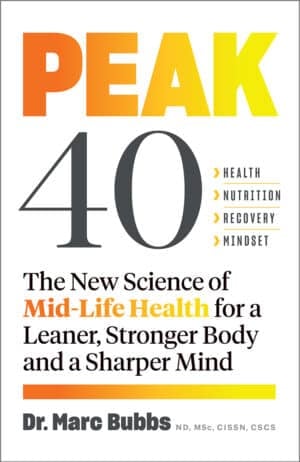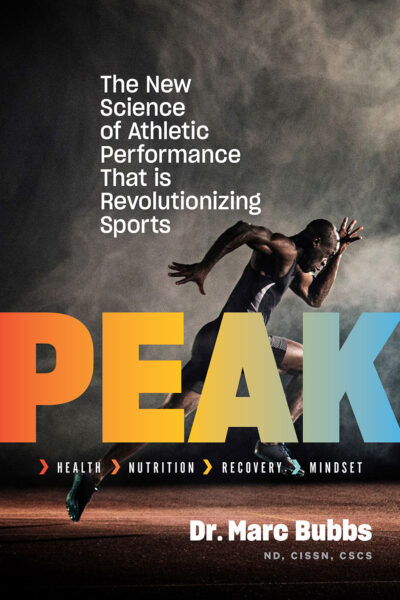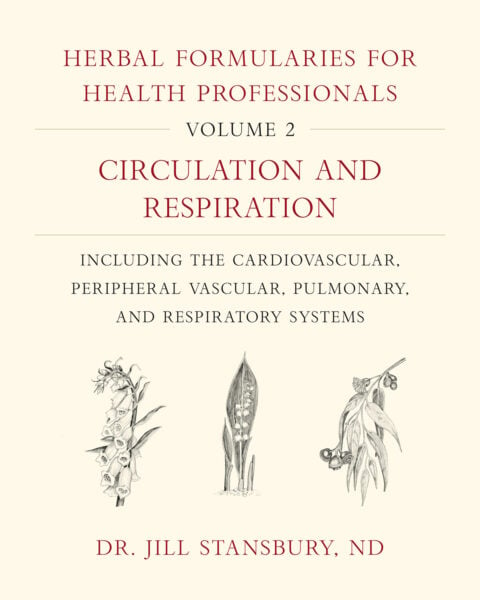Three Ways to Improve Your Mindset

We don’t realize how much our mindset affects our day-to-day activities until we become in tune with our bodies. Through practices like self-talk, mindfulness, and optimism, we can vastly improve our mental and physical health.
The following is an except from Peak 40 by Marc Bubbs. It has been adapted for the web.
If your personality traits are the hardware on your computer and values are the coding, your mindset skills are the software that holds your values in place. Mindset skills, for example mindfulness (the ability to maintain attention), self-talk and optimism, are trainable, unlike personality traits. When you upgrade your mental performance skillset, it allows you to direct your actions and behaviours more effectively towards your values and, ultimately, your goals. You don’t have to listen to your inner monologue berating you for not waking up early to run, snacking too frequently, or generally not living up to your expectations; you have the power to code new, positive thought patterns. Developing mindset skills orients you towards your values, empowering you to navigate challenging situations (where coming up against roadblocks is inevitable). Invest the time in developing them, to rewrite your mindset software, and you’ll amplify your odds of success. Building these skills are a good starting point:
• Self-talk (confidence)
• Mindfulness (ability to maintain attention)
• Optimism (positivity)
Self-Talk
Why do you remember the bad things that happen in your day more clearly than the good? Why do you remember the negative comment from a friend or colleague weeks, months, even years later, but the positive ones seem to slip past? Because you’re human. In evolutionary terms, we’re hard-wired to default to negative, cautious or fearful thoughts, in order to survive. Hundreds of thousands of years ago, if you heard a snarl in the night, it was far more advantageous to err on the side of caution, than it was to put yourself in harm’s way. If you got it wrong, you were dead. Today, this evolutionary hangover is still within us.
Self-talk reverberates deep in your subconscious and negative self-talk is like a heavy backpack weighing you down, quickly sabotaging your mood, confidence and likelihood of success, and preventing you from moving forwards at speed. When you add to the mix the effect that lack of sleep and chronic stress have on triggering overly emotional responses and preventing you from thinking ‘big picture’, it’s easy to see how self-talk can quickly turn south (and your confidence along with it).
Building Confidence
Where does confidence come from? It comes from preparation, hard work and past successes. If you enter a new domain or haven’t succeeded in a current one for some time, how do you cultivate the confidence to enter the arena, to be willing to put yourself out there and try? You need to rewire your internal monologue.
The godfather of modern psychology, Albert Ellis, uncovered that how you talk to yourself, and think to yourself, about your experiences has a major influence on how you perceive them.2 Thoughts like ‘This is too hard, I can’t do it’ or ‘I’ll never be good enough’ or ‘This won’t work for me’, leave you in an anxious or worried state. Your thoughts are tightly linked to your emotions, making negative self-talk a major PEAK40 health and performance roadblock. This is even more true in domains where you’ve struggled in the past.
The language you use to describe your situation, in life, at work, or in performance goals, determines how you actually see it, experience it and participate in it.
 These were the findings of renowned professor Will Hart, PhD, from the University of Alabama, who proved positive self-talk to be an effective strategy for boosting confidence, mood and productivity.3 What separates elite performers and individuals who achieve their lifelong goals from the rest is their ability to steer their inner monologue towards positive outcomes (and away from doubt). They believe they will succeed. But elite performers recognize that failing in an endeavour, in an attempt to grow or achieve, doesn’t make you a failure. Failure is inevitable when chasing lofty goals; it’s a necessary part of the journey. The best athletes fail all the time.
These were the findings of renowned professor Will Hart, PhD, from the University of Alabama, who proved positive self-talk to be an effective strategy for boosting confidence, mood and productivity.3 What separates elite performers and individuals who achieve their lifelong goals from the rest is their ability to steer their inner monologue towards positive outcomes (and away from doubt). They believe they will succeed. But elite performers recognize that failing in an endeavour, in an attempt to grow or achieve, doesn’t make you a failure. Failure is inevitable when chasing lofty goals; it’s a necessary part of the journey. The best athletes fail all the time.
Failing doesn’t make you a failure, it’s simply an opportunity for growth. True failure is when you’re too afraid to try, or fear the opinions of others so much you won’t even make the attempt.
Reboot Your Internal Monologue
Try repeating the following phrase every morning while you shower, or write it down on a Post-It note and stick it to your mirror:
I am willing.
I embrace uncertainty.
I am not my thoughts; I am my actions.
Or create your own short phrases that relate to your values and goals, and repeat them every morning.
Mindfulness
Mindfulness is focusing your attention on the process (and not the future outcome). In order to have a greater awareness of your thoughts, you need to build the skill of attention. Today, we live in a world with a wealth of information, but a poverty of attention. Mindfulness is the ability to place your full attention on what is happening right now, cutting through the ‘busyness’ noise of life like a hot knife through butter.
Staying Present
It’s human nature to look ahead into the distance to see if you’ve reached your goal (like kids in the back of the car yelling, ‘Are we there yet?’), but staying present is a key characteristic of high performers. It can feel like everyone else is hitting their goals and you ask yourself, why not me? For example, everyone can seem to be achieving rapid weight loss on social media (despite the reality being very different), which can amplify anxiety and sabotage your consistency. This leads to short-term thinking and a shotgun approach to diet, exercise and lifestyle changes. If the latest popular diet doesn’t work for you, you move on to another, looking for a quick fix. The truth is, no matter what diet you choose, there will always be roadblocks. Determining the right strategy to overcome them can be difficult and take a little time. The best predictor of success – in weight loss, nutrition or training – is compliance. Simply showing up every day, putting one foot in front of the other and committing to the process is the ‘secret’ to success. (And most clients fail to celebrate it.) But if you’re constantly thinking about your future goal and why you’re not achieving it, it will breed anxiety, which can derail consistency and your ability to focus on the process in the present moment.
lifestyle changes. If the latest popular diet doesn’t work for you, you move on to another, looking for a quick fix. The truth is, no matter what diet you choose, there will always be roadblocks. Determining the right strategy to overcome them can be difficult and take a little time. The best predictor of success – in weight loss, nutrition or training – is compliance. Simply showing up every day, putting one foot in front of the other and committing to the process is the ‘secret’ to success. (And most clients fail to celebrate it.) But if you’re constantly thinking about your future goal and why you’re not achieving it, it will breed anxiety, which can derail consistency and your ability to focus on the process in the present moment.
Recent studies on mindfulness have revealed that it improves your coping response to stress and limits avoidance (a major win when trying to resolve a weight-loss plateau or chronic health challenge), it improves emotional regulation, leading to better resilience, and it reduces symptoms of low mood and depression.4 Do you ever feel anxious, irritated or easily annoyed? What about a persistent sensation of worry or anxiety? Does your mind often feel frenetic or overly critical towards yourself? Are your energy levels flat? Mindfulness has been shown to improve all of these areas (and then some). Mindfulness also helps to downshift an overactive nervous system, providing a feeling of relaxation that benefits memory and focus, blood pressure and heart rate, as well as a feeling of connectedness with others.5
Learn the Right Mindset Skills
Entire books are written on the subject, but I’ll share a couple of techniques I’ve found useful and effective to get clients started.
Mindful Breathing
Taking a page from the Navy SEALs playbook, this exercise is called the 4-minute drill:
Inhale for 4 seconds
Exhale for 4 seconds
Repeat for 4 minutes (And you’re done!)
It’s a great strategy to curb irritation, restlessness or anxiety when the pressure mounts (like heading into enemy territory!).
Mindfulness Immersion
If you’re struggling to find time for mindfulness, insert mindfulness immersion into what you are already doing with your time.
Mindfulness immersion is the practice of using mundane tasks – like doing the dishes, the laundry or cleaning up around the house – to ‘turn off’ your thinking brain and shift your focus deeply into your household chores. (Let’s face it, there is no shortage of those tasks in mid life!) Forget your deadlines and your to-do lists; dial all your attention into the task at hand.
Performing mundane tasks is a common theme in many spiritual practices. In Zen Buddhism, there is a saying: ‘Before enlightenment, chop wood, carry water. After enlightenment, chop wood, carry water.’
This underscores the notion that achieving your goal is not the endpoint and that even once you’ve achieved your goal, you’ll still need to put the work in. Cultivating the skill of attention, via mindfulness, will serve you on your journey both to accomplishing your goals, as well as afterwards, for the more challenging hurdle of maintaining them.
Optimism
To achieve PEAK40 health and performance, optimism is essential. Optimism is intimately linked to motivation; optimistic people are more motivated, they exert more effort and they tend to have more social connections.6 Optimism also bestows increased resilience to you for dealing with stressful life events – an important skill in the busy traffic of mid life.7 Optimists are also more likely to believe a stressful event now can lead to a better and brighter future.8 At the broadest level, optimism has protective properties for both mental and physical health, largely via its effects on health-promoting behaviours.9 These are all crucial to successful behaviour change.
 It was once thought that you were either an optimistic or pessimistic person. However, more recently scientists have uncovered that rather than being a hardwired personality trait, optimism is a skill that can be trained. The challenge is building optimism.
It was once thought that you were either an optimistic or pessimistic person. However, more recently scientists have uncovered that rather than being a hardwired personality trait, optimism is a skill that can be trained. The challenge is building optimism.
Imagine Your Best Self
New research has found that a daily, five-minute session of imagining your ‘best self ’ can improve optimism. I use a variation of this exercise with weight-loss clients.
Imagine you’ve achieved your weight-loss goal and write down a detailed description of how you feel in your new body.
• What new emotions or sensations do you experience?
• What new identity do you take on?
• What new relationships have you built (or what old ones have you extinguished)?
Really lean into the exercise; clearly define how it looks and how it feels to be ‘that person’. Have you imagined it? Once you have that picture clearly in your mind, ask yourself a question: how many of those attributes could you apply to yourself, today? Do you really have to wait until you’ve achieved ‘success’ on the scales to take on those feelings, behaviours and identity? Almost always, the answer is no.
The difference is the six inches between your ears. The difference is your mindset. Optimism helps to light the torch and extinguish the constant drip of negative thoughts and self-doubt.
Recommended Reads
Recent Articles
Garlic mustard: while known as “invasive,” this plant can be consumed in its entirety and has great nutritional value. Plus, the garlic-flavor is a perfect addition to any recipe that calls for mustard! The following are excerpts from Beyond the War on Invasive Species by Tao Orion and The Wild Wisdom of Weeds by Katrina…
Read MoreMany know the effects of catnip on our feline friends, but few realize that catnip has medicinal effects for humans. From stomach aches to reducing fevers, catnip is a versatile herb with many benefits. The next time you grow this plant for your cat you may end up taking a few cuttings for yourself! The…
Read MoreWhether you’re looking to replace your end-of-the-day cocktail, relax before bed, or want something new to add to your tea, this non-alcoholic mocktail syrup base will do the trick. Delicious and all-natural, take a sip of this nightcap mocktail and feel your troubles melt away. The following is an excerpt from Herbal Formularies for Health…
Read MoreSurprisingly, medicine can actually be delicious. This anti-inflammatory smoothie uses natural (and tasty!) ingredients to help reduce inflammation caused by any number of circumstances. The following is an excerpt from Herbal Formularies for Health Professionals, Volume 4 by Jill Stansbury. It has been adapted for the web. RECIPE: Ginger and Pineapple Anti-Inflammatory Smoothie This is an all-purpose…
Read MoreMake your own delicious, healthy, probiotic sauerkraut! Four easy steps are all you need to turn fresh garden veggies into a long-lasting, tangy, pungent condiment. The following excerpt is from The Art of Fermentation by Sandor Ellix Katz. It has been adapted for the web. 4 Simple Steps to Making Sauerkraut The English language does…
Read More









